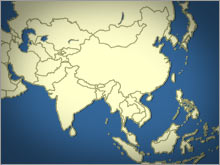|
Reeling in asian riches
After hitting some snags, I found that buying materials overseas pays off.
(FORTUNE Small Business Magazine) - Late last year I decided to begin importing resins, the raw materials our family-owned company uses to manufacture plastic bags. I had heard the prices offered by suppliers in Asia had become too attractive to pass up, as much as 50% cheaper than resins produced in the U.S. But how could I get started?
The plastics brokers I work with are bound by exclusive contracts with such large domestic producers as Dow Chemical (Research) and Exxon Mobil (Research), so they couldn't source overseas. The thought of buying directly from Asian suppliers spooked me. Most want payment prior to shipment, which would leave me precious little leverage if the material wasn't any good. A few years ago I had gone so far as to call and e-mail a handful of Asian producers, but none of them ever responded to my interest. Until recently Far East capacity was so tight that companies felt no need to export. Last year soaring worldwide capacity - thanks to new facilities in China and Thailand - and the opportunities created by the Gulf Coast hurricanes combined to lure Asian producers this way. Bagmakers like myself, facing domestic shortages and exponential cost increases (raw-material prices doubled after Hurricane Rita), wanted to do business. At least theoretically. I began by trying to buy from a Malaysian producer that offered prices 25% below those of my domestic suppliers. But I backed away when the Malaysian company demanded that we pay upfront, take care of the import duties, and arrange for shipping the resin from the port to our factory. Using a U.S. contact
I next contacted a U.S. distributor that imported a different kind of plastic from Asia. Looking to diversify, it linked us with a Taiwanese supplier and agreed to pay the duties, arrange shipping, and handle the billing, all for the same price the Malaysians offered. For its part, the Taiwanese supplier - accustomed to U.S. companies that bought a load or two and then disappeared - wanted some assurance I would be a long-term customer. I promised I wouldn't be a fly-by-night buyer, and it agreed to forgo a long-term contract. Having picked a supplier, I quickly learned that getting the product I wanted would take some sleuthing. Domestic producers make the order process easy by providing standard product descriptions that detail every physical property. Our new Asian partner offered incomplete information. It couldn't provide any detail, for instance, about the clarity my bags would have if I used its resin. When e-mails didn't resolve the issue, we had to deduce the answer using the information we had. It wasn't reassuring, but it did work. Getting the material here provided its own set of issues. Some Asian suppliers wanted as long as eight weeks to deliver, in contrast to our usual four weeks. Obviously the problem of long lead times could be solved by building that into the order process. Finally getting delivery
Once the material arrived from Asia, we would have to unload it. Exxon Mobil sends us railcars holding 195,000 pounds of resin that we pump directly into our machines. Our Taiwanese supplier wanted to ship the resin in 55-pound bags that our employees would have to slit open individually and empty into bins. I had visions of workers wrenching their backs, and bags of plastic-resin pellets spilling onto floors. The first load came close to my nightmare. Sacks were piled floor to ceiling and had to be unloaded by hand. We took some pressure off employees by hiring temporary workers to assist. The next load at least came with the bags stacked on pallets. But we still had to slit them open and empty them into bins. Our Asian supplier is now working on a way to pump resin directly into a storage silo from a shipping container. Despite the obstacles, today I'm importing about 20% of my monthly resin needs and saving about 25% compared with what I'd pay for it here. My U.S. suppliers say I'll probably end up dumping my new Asian providers if prices equalize. But I think that's doubtful. I remain worried that hurricanes will cause resin shortages in the U.S. and price hikes next summer or the summer after. By importing, I'm saving money and protecting my company against supply disruptions. Who can beat that? Kevin Kelly left full-time journalism eight years ago to run his family's company, Emerald Packaging. Investment opportunities in China. Click here.
The too tight connection between politics and business in Korea. Find out more. |
|

